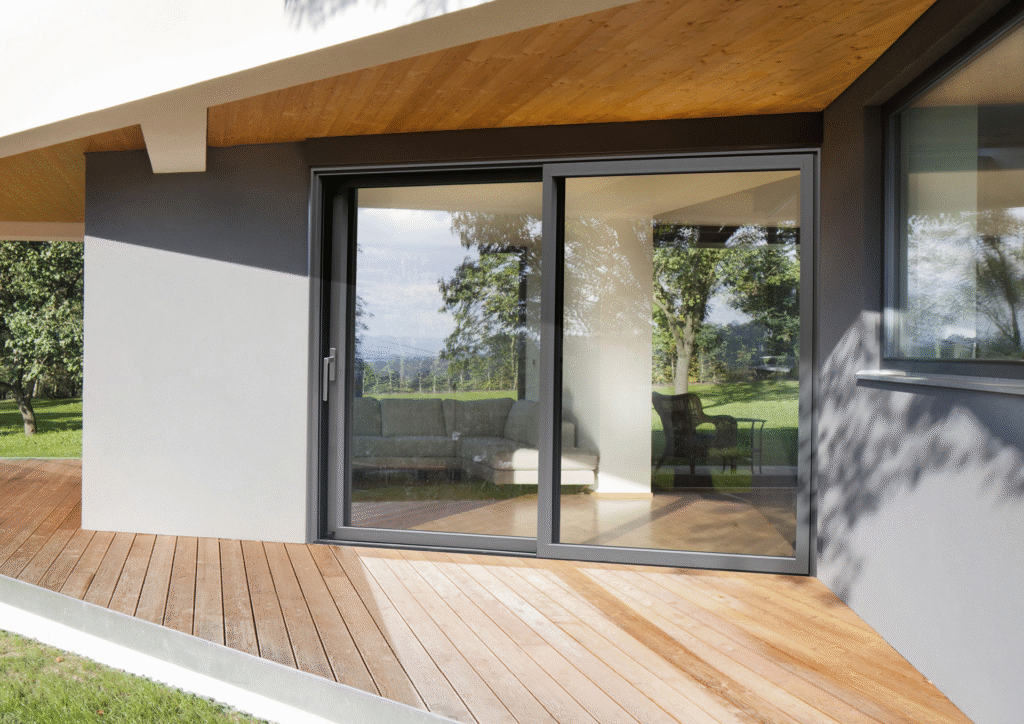
Automatic doors have become a staple in modern architecture—and Derby is no exception. From retail shops to hospitals and office complexes, automatic doors are making buildings more accessible, efficient, and stylish. If you’re in Derby and thinking about upgrading your entrance, there’s never been a better time to explore what automatic doors have to offer.
What Are Automatic Doors?
Basic Definition and Functionality
Automatic doors open and close without manual intervention, usually triggered by sensors. These doors help streamline entry and exit, especially in high-traffic areas.
Types of Automatic Doors
- Sensor-operated sliding doors
- Automatic swing doors
- Revolving doors for controlled environments
- Bi-fold or telescopic doors for limited spaces
Benefits of Installing Automatic Doors in Derby
Convenience and Ease of Access
No more pushing or pulling—just walk through. Whether you’re carrying shopping bags or pushing a pram, automatic doors make entry seamless.
Energy Efficiency and Cost Savings
With intelligent sensors, these doors open only when needed, helping to maintain indoor temperatures and reduce heating or cooling bills.
Hygiene and Safety
In a post-pandemic world, touch-free entry reduces the spread of germs and enhances overall safety.
Modern Appearance and Branding
Sleek, stylish, and futuristic—automatic doors give your premises a professional, modern look that customers notice.
Popular Applications in Derby
Commercial Buildings
Offices across Derby use automatic doors to create an accessible and professional first impression.
Healthcare Facilities
Hospitals and clinics benefit from hands-free entry, especially for stretchers and wheelchairs.
Educational Institutions
Universities and schools rely on automatic doors for both student convenience and security control.
Retail Stores and Shopping Centres
With heavy footfall, retail environments rely on automatic doors to manage flow and offer a welcoming entry.
Types of Automatic Doors Available
Sliding Doors
Perfect for wide openings and continuous pedestrian traffic.
Swing Doors
Ideal for retrofitting older buildings without major structural changes.
Revolving Doors
Excellent for insulation and preventing air infiltration in busy commercial hubs.
Folding Doors
Great for tight spaces where swing or slide motion isn’t ideal.
Key Features to Consider Before Buying
Sensor Types
Infrared, motion, and touchless sensors offer varying levels of precision and response.
Door Materials
Choose from glass, aluminium, steel, or composite materials depending on your needs and aesthetics.
Security Features
Many models include electric locks, access control systems, and emergency override mechanisms.
Customisation Options
Choose colours, patterns, logo etching, and more to match your brand and building style.
Choosing the Right Supplier in Derby
What to Look for in an Installer
Look for experience, certifications, warranty offerings, and portfolio of past projects.
Importance of Local Expertise
Local companies know Derby’s architecture and planning requirements—plus, they’re just around the corner for quick support.
Aftercare and Maintenance Services
A good supplier offers ongoing support, not just installation. Maintenance contracts ensure your doors run smoothly long-term.
Installation Process Explained
Site Assessment
The process begins with a professional inspection and consultation to determine the best fit for your space.
Custom Design
Doors are tailored to your space and branding preferences, with options for materials, motion range, and finishes.
Fitting and Testing
Installation is completed with full testing to ensure safety, performance, and compliance.
Maintenance and Repair of Automatic Doors
Routine Checks
Regular maintenance avoids breakdowns and extends the lifespan of your investment.
Emergency Repairs
If something does go wrong, 24/7 emergency repair services are often available with local providers.
Maintenance Contracts
Many businesses opt for scheduled service contracts to keep their doors in top condition year-round.
Regulations and Accessibility Standards
UK Legal Requirements
Automatic doors must comply with British Standard EN 16005 for safety, including motion control and force limits.
Disability Compliance
Doors should meet the standards set in the Equality Act 2010 for accessible building design.
Eco-Friendly Options for Sustainable Buildings
Low-E Glass and Insulated Frames
These reduce energy loss and improve climate control inside your building.
Motion-Activated Efficiency
Advanced sensors ensure doors open only when needed, cutting down unnecessary airflow.
Costs Involved in Automatic Door Installation
Price Factors
Costs vary depending on door type, material, installation complexity, and extra features like access control systems.
Long-Term Value and ROI
While initial installation can be pricey, energy savings, security, and convenience often justify the cost over time.
Case Studies: Successful Installations in Derby
Local Business Transformations
From boutiques to supermarkets, businesses across Derby have improved their operations and customer experience with automatic doors.
Customer Testimonials
“Installing automatic doors changed the way our customers shop—effortless entry and better footfall!” – Local shop owner, Derby City Centre.
Future Trends in Automatic Door Technology
Smart automation, app-based access, and AI-driven sensors are shaping the next generation of entry systems—bringing smarter, more responsive buildings to Derby.
Conclusion
If you’re looking to make your Derby property more accessible, efficient, and modern, automatic doors are the way forward. Whether you’re a business owner or property manager, the right system can elevate your space both functionally and aesthetically. From consultation to installation and beyond, Derby’s expert installers are ready to help you take that next step.
